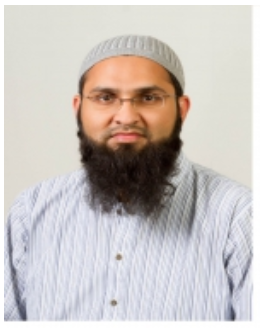Dr. Basit Shahzad

Director (Center for Multidisciplinary Research)
National University of Modern Languages
Sector H-9, Islamabad.
Title of the Talk: Software and Society
Abstract: Software development is prone to errors and flawed practices, leading to costly failures. These failures have a significant financial impact, often scaling with the project’s size. But the cost goes beyond money. Software failures can also have a social impact, affecting the quality of life for those involved. Developer dissatisfaction, job losses, and even societal unrest can be downstream consequences. By implementing effective mitigation strategies, we can not only ensure successful software development but also minimize the social disruption caused by these failures. This talk will delve into software failures, exploring their economic and social consequences. We’ll also discuss strategies to overcome these challenges and build more resilient software.
Introduction: Dr. Basit Shahzad received his M.Sc. degree from the National University of Science and Technology (NUST), Islamabad, Pakistan, and his Ph.D. from the University Technology Petronas, Malaysia. Dr. Basit Shahzad is, and has been working as a ‘Visiting Scientist’ at the Computer Laboratory, University of Cambridge, U.K. Dr. Shahzad has served as an Assistant Professor at COMSATS Institute of Information Technology, Islamabad and at King Saud University, Riyadh. Dr. Basit Shahzad has served as Dean Faculty of Engineering and Computer Sciences at National University of Modern Languages (NUML), Islamabad and is currently serving NUML as Director for Center for Multidisciplinary Research. Dr. Shahzad has also served as a consultant to the Election Commission of Pakistan. He has numerous publications in journals and conferences of international repute and has a very active research profile. Dr. Basit Shahzad is world’s most cited researcher in the area of Software Risk Management and has a cumulative impact factor of over 130. He has editorial role in several journals of high repute and has edited a number of special issues in the areas of software engineering, social networks, and mobile healthcare. His research and teaching career spans over 20 years. His current areas of research include Social Computing, Blockchain-based digital initiatives, Software Requirements Engineering, and Quantum Software Engineering.
Dr. Tariq Mahmood

Professor – Department of Computer Science
MS CS and MS DS Program Coordinator, Head of Big Data Analytics Laboratory (BDA-LAB)
Institute of Business Administration (IBA), Karachi
Title of Tutorial: Bayesian vs Frequentist Machine Learning: A Healthcare Analytics Perspective
Topic Description: This tutorial will focus on two well-known machine learning approaches: Frequentist and Bayesian. The former involves the ever expanding landscape of statistical machine learning algorithms while the latter involves the use of Bayesian methods to sample predictions from posterior distributions of the labels based on prior and likelihood of the predictors’ distribution. It is generally well-known that data scientists tend to prefer frequentist over Bayesian approaches, possibly due to some success of ensemble models to address overfitting and achieve high performance metrics. This tutorial argues that Bayesian approaches have unrealized predictive power, and can potentially compete with frequentist models. We will present its two applications in the healthcare analytics domain: 1) prediction of length of stay for Aga Khan University Hospital (AKUH) patients, and 2) prediction of cardiac mortality for Tabba Heart Institute (THI) patients.
Aims and Learning Objectives: The primary aim of this tutorial is to compare the performance of Bayesian and Frequentist machine learning approaches. We focus on the use of the Markov Chain Monte Carlo (MCMC) method for sampling posteriors. Such a comparison is not a norm in the machine learning community. So, the tutorial demonstrates the potential power of Bayesian approaches in critical machine learning applications. We present an application and comparison with frequentist approaches for case studies conducted with two local hospitals, AKUH and THI.
An Outline of the Tutorial Content: After the basic ML theory, the tutorial veers towards the description of frequentist and Bayesian approaches to machine learning, including the possible pros and cons. Then, the process and results of two healthcare applications will be presented, along with the limitations of each approach. The tutorial terminates with key observations of an ML application in the healthcare domain, based on applications in these and other projects.
Prof. Dr. Muhammad Tanvir Afzal

Professor
Shifa Tameer-e-Millat University, Islamabad
Topic: Harnessing the Potential of Visualizing Medical Data for Informed Decision-Making
Speaker: Dr. Afzal received the PhD degree with highest distinction in Computer Science from the Graz University of Technology, Austria, secured Gold medal in his M.Sc Computer Science from Quiad-i-Azam University, Islamabad. He has been associated with academia and industry at various levels for the last 20 years, and currently he is serving as Director Campus at one of the largest campus of Shifa Tameer-e-Millat University at park Road Islamabad, Pakistan. He is also serving as Director and Professor, at Faculty of Computing, STMU and previously, he has served Namal Institute Mianwali as Director (QEC) and Professor. He has served Capital University of Science and Technology, Islamabad as Professor, Associate Professor, and Assistant Professor of CS. Furthermore, he has served NESCOM, COMSATS University Islamabad, and JinTech Islamabad. He is also serving as editor-in-chief for reputed impact factor journal known as: Journal of Universal Computer Science. Dr. Afzal authored more than 130 research papers, including over 70 published papers in impact factor leading journals in the field of Artificial Intelligence, Data Science, Information retrieval and visualization, Semantics, Digital Libraries, and Scientometrics. He has authored two books and has edited two books in Computer Science. His cumulative impact factor is 150+, with citations over 1,600. He played pivotal role in making collaborations between STMU-JUCS, MAJU-JUCS, MAJU-IICM, and TUG-UNIMAS. He served as PhD symposium chair, session chair, finance chair, committee member, and editor of several IEEE, ACM, Springer, Elsevier international conferences and journals. Dr. Afzal conducted more than 100 curricular, co-curricular, and extra-curricular activities in the last 5 years including seminars, workshops, national competitions (ExcITeCup) and invited international and national speakers from Google, Oracle, IICM, IFIS, SEGA Europe etc. Under his supervision, more than 70 post grad students (MS and PhD) have defended their research theses successfully and a number of PhD and MS students are pursuing their research with him. He served as Master trainer and a program director at a national level training for a public sector organization in Pakistan on Human Factors Engineering and conducted the training of over 150 hours for experts from the industry. He is the recipient of multiple international research funding.
Dr Muhammad Ali Ismaeel

Professor
NED UET, Pak.
Speaker: Muhammad Ali Ismail, PhD, Senior Member IEEE & MIET is a Professor and Chair at Department of Computer and Information Systems Engineering, NED University of Engineering and Technology. He is also serving as Director High Performance Computing Center and Scientific Director National Center in Big Data and Cloud Computing at same University. He has more than 20 years’ experience of research, teaching and administration in both national and international universities. He did his PhD in High Performance Computing in 2011. Afterwards he pursued his post doctorate in Automatic Design space exploration from ULBS Romania. He has published over 80 scientific papers in international journals and conferences along with U.S. patent. He has won many of the national and international grants of worth above PKR. 250M. He is also the recipient of Research Productivity Award by Pakistan Council for Science and Technology- Ministry of Science and Technology, Government of Pakistan. His current research interests include High Performance Computing, Computational Astrophysics, Big data mining, Cluster and Cloud Computing, Multicore processor architecture and programming, Machine learning, Heuristics and automatic design space exploration. He is also serving IET Karachi Network as its Vice Chairman.
